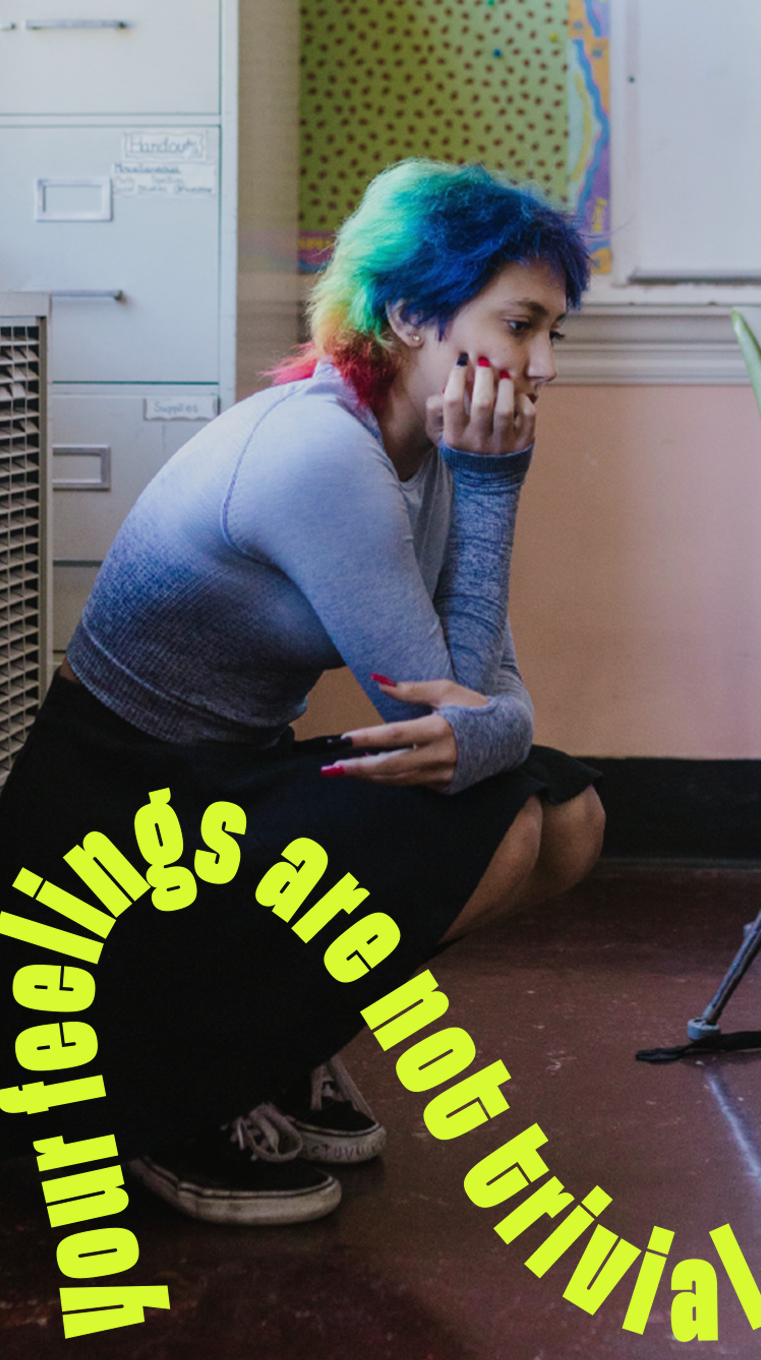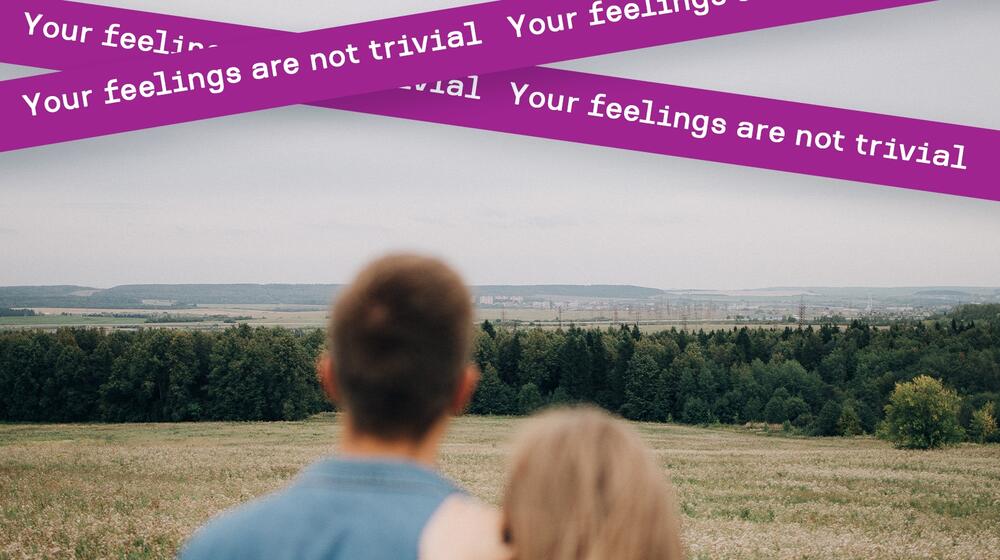News
No trivia: How a virtual safe space in Ukraine is helping teenagers prioritize their mental health
- 24 January 2023
News
KYIV, Ukraine – "The chat helps me feel very safe." "It's like talking to a friend." “It’s useful for people like me, who are afraid to talk because they weren’t allowed to show their emotions or feelings since childhood.”

These are just some users’ responses to a virtual counselling platform in Ukraine, called No trivia. When Russia launched a full-scale war against Ukraine in February 2022, UNFPA scaled up this educational project, which provides psychological assistance to teenagers. Funded by the British government and implemented by UNFPA and local NGO MoloDvizh, the platform launched in 2019 on 12 August – International Youth Day.
Initially aimed at encouraging discussions on both healthy and toxic relationships, No trivia expanded to address the overwhelming feelings and experiences that the war has caused or exacerbated for young people. UNFPA’s Nadiia Kovalevych explained, "All negative emotions and stress affect relationships with others, and can lead to increased violence."
The platform reaches its audience through a website, an Instagram account, and an automated Telegram ‘chatbot’ that provides information and directs users to the appropriate services. So far, more than 30,000 teenagers have used the chatbot, which asks users to assess their emotional state and identify the problems worrying them most. The bot then suggests articles, relaxation techniques or a session with a psychologist, which takes place directly in the chat – free of charge and anonymously.
“Children are still living their lives”
In 2022, 14 psychologists working with the platform gave over 4,000 consultations, the majority of which were almost reassuringly typical concerns: Misunderstandings with parents, relationships with peers and romantic interests, worries about mental health, and trouble regulating emotions.
“Children are still living their lives. However, all requests are somehow related to the war, because they live in a country where it is ongoing,” said Dana Yakovenko, No trivia’s senior psychologist.
“Their friends have left, and their relatives may be in the armed forces or stuck in dangerous cities. This often affects their condition, causing anxiety or depression. At the same time, they are teenagers trying to understand themselves and their relationships to others – and this must be resolved despite the war.”
War increasing the prevalence of self-harm
In addition to the thousands killed and injured, the war in Ukraine has left less visible scars: the WHO estimates that 10 million Ukrainians — or one in four people — are at risk of acute stress, anxiety, depression, substance use and post-traumatic stress disorder.
Ms. Yakovenko said she had seen an increase in self-harm cases since the war started. “For many, harming themselves intentionally can serve as a means to regulate emotions when it is impossible to express anxiety."
She continued, “For teenagers, it’s easier to report issues in an anonymous chat – to write to a psychologist who can’t see them and who they can’t see. We talk a lot about violence, including sexual violence. Our task is to support these children and then refer them for targeted help, such as long-term therapy.”
The relaunched No trivia project has so far reached some 3 million teenagers with advice on monitoring their emotional state and protecting their personal boundaries – both of which are essential in strengthening prevention of gender-based violence.

Returning with confidence
More than one third of No trivia users are teens returning with other issues. "Sometimes they first check whether it is possible to deal with us through less painful requests," said Ms. Yakovenko. "When they realize there is empathic support here, that we do not criticize, they share deeper requests and fears with us."
If psychologists identify signs of any disorders during the counseling, they advise the child to talk to their parents and visit a doctor; in critical cases, the bot directs them to emergency services and specialized hotlines. “Our task is to educate them on how mental health care is provided in general, where they can turn for help,” she explained.
The head of the MoloDvizh centre in Lviv, Roman Tsudnyi, told UNFPA that demand is sure to only grow over time. “The war is a catalyst for all the problems of young people. When it is unclear what tomorrow will bring, the sense of justice, which is inherent for teenagers, becomes very acute and affects relationships with others.”
UNFPA in Ukraine is assisting people seeking critical sexual and reproductive care and raising awareness around mental health, especially in the aftermath of a crisis and for survivors of violence. As such, there are plans to strengthen the educational component of the chatbot. “After all, just understanding your condition already relieves a lot of stress,” said Ms. Yakovenko.